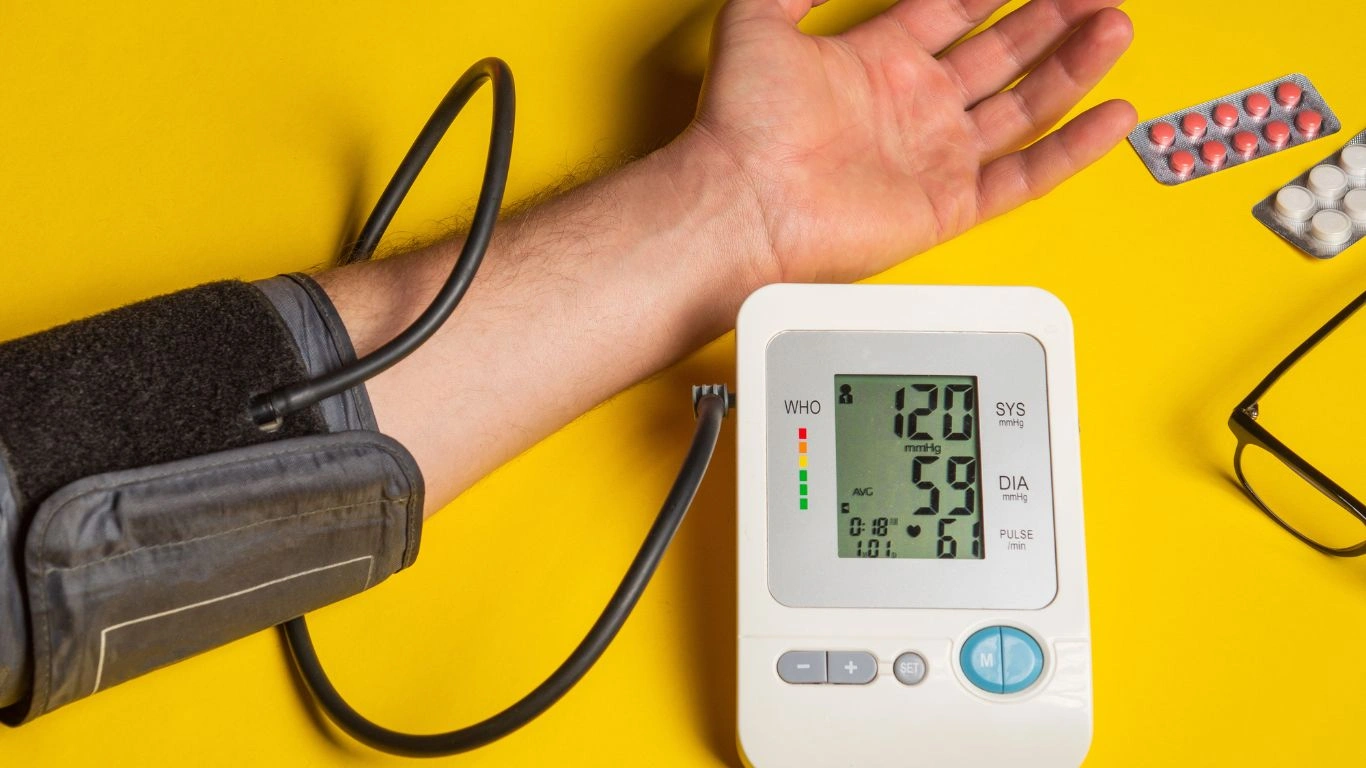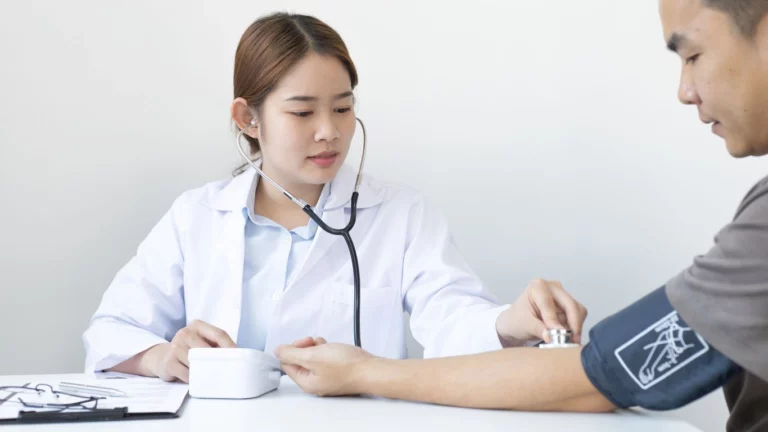Best Teas for High Blood Pressure – Your Ultimate Guide to Natural Relief
Looking for a natural way to manage high blood pressure? Check out our list of the best teas for lowering blood pressure and promoting overall heart health!
If you’re dealing with high blood pressure, you know how important it is to keep it in check. While medication is often necessary, natural remedies like drinking tea can be a great complement to your treatment plan. Plus, sipping on a warm cup of tea isn’t just soothing—it can help you feel better while supporting your heart health!
What Causes High Blood Pressure?
Before we get into the teas, it’s helpful to understand what causes high blood pressure (also known as hypertension). Your blood pressure rises when the force of the blood against your artery walls is consistently too high. Factors like poor diet, lack of exercise, smoking, stress, and even genetics can play a role in developing hypertension.
When left untreated, high blood pressure can lead to serious health problems like heart disease, stroke, and kidney damage. That’s why managing your blood pressure is essential—and adding the right teas to your daily routine could help you along the way!
Best Teas for High Blood Pressure
1. Hibiscus Tea
Hibiscus tea is one of the most well-known teas for managing high blood pressure. It’s made from the dried petals of the hibiscus flower, and studies have shown that drinking it regularly can significantly lower both systolic and diastolic blood pressure. It’s believed that hibiscus works by acting as a natural ACE inhibitor, helping to relax blood vessels and reduce strain on the heart.
Plus, it’s deliciously tart and refreshing, so it’s easy to add to your daily routine!
2. Green Tea
Green tea is another powerhouse when it comes to supporting heart health. Rich in antioxidants called catechins, green tea has been shown to help lower blood pressure by improving blood vessel function. It’s also known for boosting metabolism and promoting overall wellness, making it a great addition to a healthy lifestyle.
While it’s not as potent as hibiscus, drinking a few cups of green tea a day can still have a positive effect on blood pressure over time.
3. Lavender Tea
Lavender is famous for its calming and stress-relieving properties, and those benefits extend to managing blood pressure too. Stress is a big contributor to high blood pressure, so by drinking lavender tea, you can help your body relax and potentially lower your blood pressure naturally.
This tea has a pleasant floral flavor, and it’s perfect for winding down in the evening after a busy day.
4. Cinnamon Tea
If you’re looking for a spice that can help manage blood pressure, cinnamon is your friend. Drinking cinnamon tea may help lower blood pressure by improving blood vessel function and circulation. It can also reduce inflammation, which is important for overall heart health.
Cinnamon tea has a warming, slightly sweet flavor that’s perfect for those chilly days when you want something cozy to sip on.
Other Teas That Can Help Lower Blood Pressure
5. Ginger Tea
Ginger tea is another great option for people with high blood pressure. Ginger contains compounds that can help improve circulation and reduce blood pressure. Plus, it’s known for its anti-inflammatory properties, which can further support heart health.
Ginger tea also has a nice spicy kick, so if you like a little bit of heat in your drinks, it’s worth trying!
6. Garlic Tea
Garlic has long been praised for its heart-healthy properties. Some studies suggest that garlic can help reduce blood pressure by relaxing blood vessels and improving circulation. While garlic tea might not be the first tea that comes to mind, it’s a great natural remedy to consider if you want to support your heart health.
It’s best to brew your garlic tea with fresh garlic to get the most potent benefits.
7. Chamomile Tea
Chamomile tea isn’t just for helping with sleep—it also has a calming effect on the body that can help lower blood pressure. The relaxing properties of chamomile help reduce stress and promote relaxation, which is key in managing hypertension.
If you’re looking for a mild and soothing tea to enjoy before bed, chamomile is a fantastic option.
How to Make Tea for High Blood Pressure
Making tea for high blood pressure is simple. Here are a few tips to get the most out of your tea:
- Steep for the right time: Let your tea steep for the recommended time (usually around 5-10 minutes) to ensure you’re getting the full benefits of the herbs.
- Avoid added sugar: While it can be tempting to sweeten your tea, adding sugar can counteract the health benefits. If you need a little sweetness, try adding a natural sweetener like honey or stevia.
- Drink regularly: For maximum benefit, aim to drink your chosen tea at least once a day, and make it a part of your daily routine.
Conclusion
Incorporating the best teas for high blood pressure into your daily routine can be a simple yet effective way to manage hypertension. From hibiscus to green tea, there’s a wide variety of options to choose from, each with its own unique benefits. Whether you prefer something calming like lavender tea or a spicy option like ginger tea, there’s a tea for everyone.
So go ahead—brew a cup of your favorite tea, sit back, and enjoy the natural benefits it offers for your heart health.
Appendices
References
- American Heart Association (AHA). (2023). The Role of Tea in Heart Health. Read Article
- National Institute on Aging (NIA). (2022). How Herbal Teas Can Help with Blood Pressure. Read Article
- Smith, J., & Brown, L. (2021). Natural Remedies for Hypertension: A Review. Journal of Clinical Nutrition, 45(2), 102-110. Read Article
FAQs
- Can drinking tea lower my blood pressure immediately? It’s unlikely that tea will drastically lower your blood pressure right away, but with regular consumption, it can contribute to long-term heart health.
- How many cups of tea should I drink to help with high blood pressure? Aim for 1-3 cups of tea per day. Stick to one type of tea or mix it up with a few different varieties for the best results.
- Can I drink tea if I’m already on medication for high blood pressure? Yes, tea can complement your medication, but it’s always a good idea to talk to your doctor to ensure there are no interactions.
- Are there any side effects of drinking tea for high blood pressure? Most teas are safe, but if you’re sensitive to caffeine, choose herbal options like chamomile or hibiscus, which are naturally caffeine-free.
- Can I drink sweetened tea for high blood pressure? It’s better to avoid adding sugar to your tea, as it can contribute to other health issues. Try natural sweeteners if you need a little extra sweetness.
Disclaimer: The information provided in this article is for educational purposes only and does not substitute for professional medical advice. Always consult with your healthcare provider before making any changes to your diet or treatment plan for high blood pressure.

Dr. Gwenna Aazee is a board-certified Internal Medicine Physician with a special focus on hypertension management, chronic disease prevention, and patient education. With years of experience in both clinical practice and medical writing, she’s passionate about turning evidence-based medicine into accessible, actionable advice. Through her work at Healthusias.com, Dr. Aazee empowers readers to take charge of their health with confidence and clarity. Off the clock, she enjoys deep dives into nutrition research, long walks with her rescue pup, and simplifying medical jargon one article at a time.






